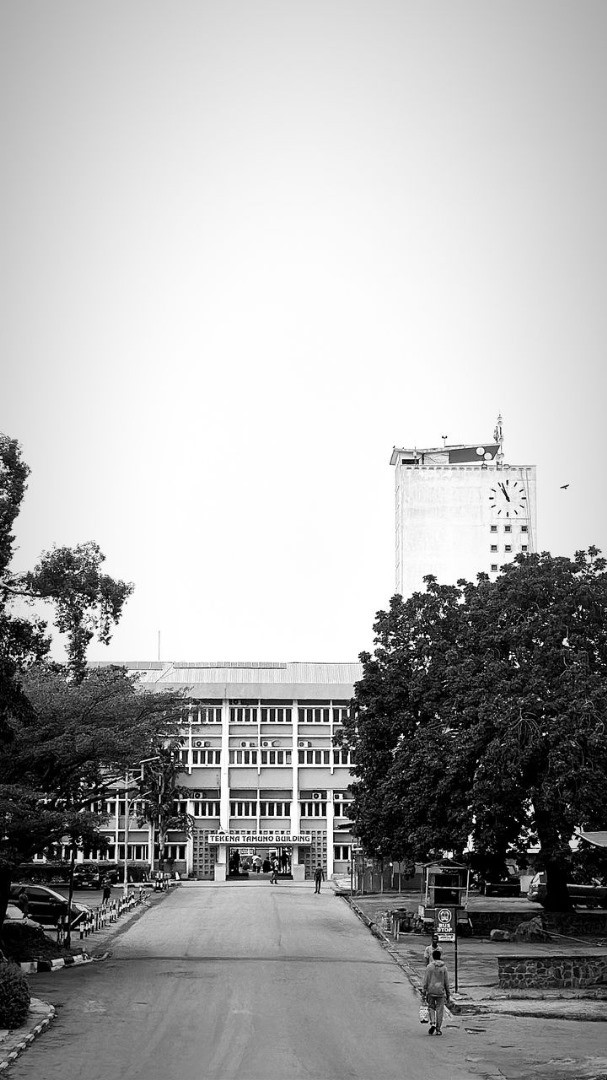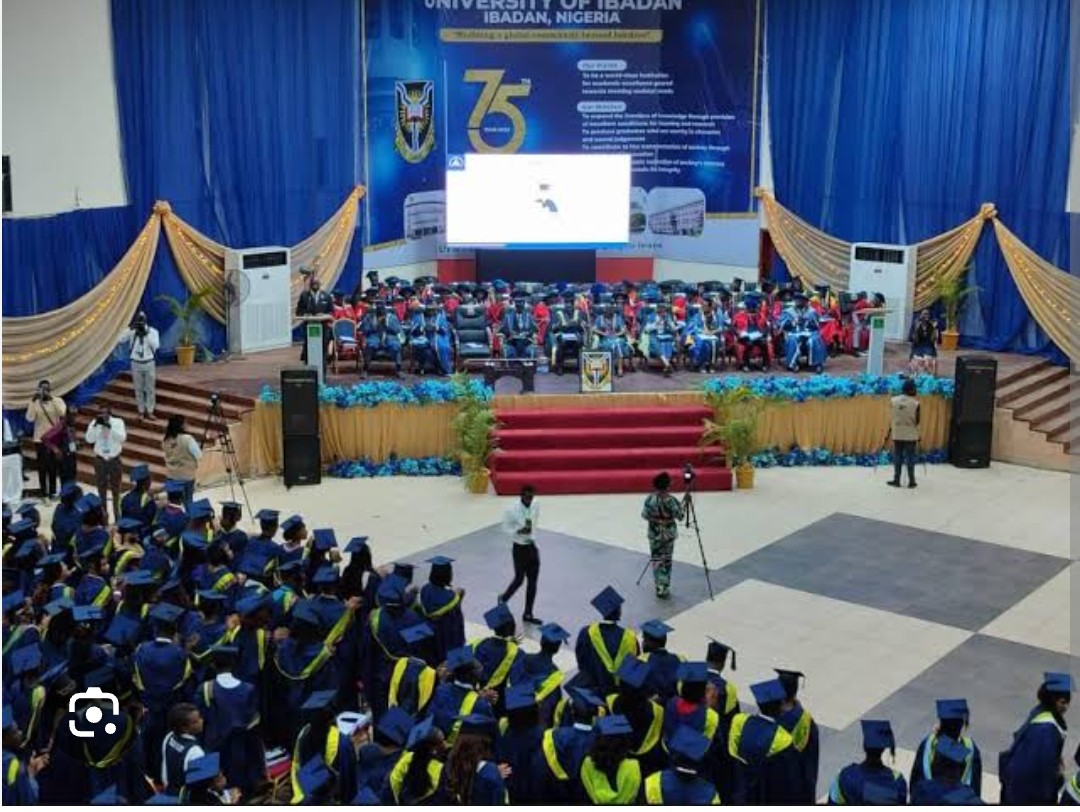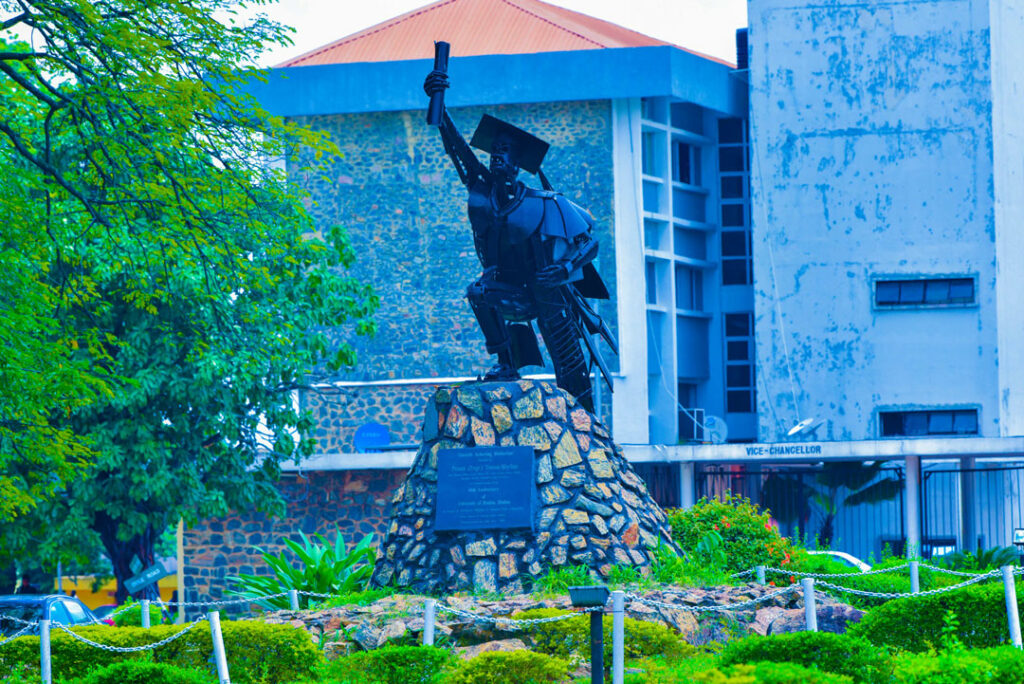Welcome Back, Everyone But Medical Students

In academia, there are two fresh starts in a calendar year; the first day of the year and the first day of a new session. As of the time of writing, it is the latter for – most of – the students of the University of Ibadan. In actuality, it is the start of a new phase for the first-year students, a new level in a familiar phase for returning students, and the end of stagnancy for the clinical students of the University of Ibadan Medical Students’ Association (UIMSA) and Unibadan Association of Dental Students (UADS). Aside from the customary resumptive dilemma to deal with such as school fees hike, accommodation chaos, etc., this is the first time in a while that a new session is not indeed new for all and sundry.
On the 16th of April, 2025, the University of Ibadan matriculated 4,633 students into her institution, engaging the freshmen in an oath of studentship administered by the school’s Registrar. As outlined in the official academic calendar, the new students have one week to complete their registrations and settle down before lecture weeks commence. That, at best, is a formality as new students would spend more than half of the first semester filling forms, appending signatures, queuing for stamps, purchasing files, going for X-ray scans and medical screening, printing and photocopying documents, all while also trying to attend classes and practicals. The first week of resumption is arguably the busiest for the administrative staff, on the ground to onboard both new and returning students. As expected, the campus will be bubbly, with bright new faces navigating all sorts of emotions from happiness to fatigue, surprise, awe, anxiety, and even guilt. Returning students who are already familiar with the landscape contribute to the ecosystem by welcoming and offering answers to the numerous questions in the minds of the new bloods. But aside from the obvious, certain issues need to be addressed, issues that are peculiar to a new session – of this sort.
The Need for Sensitization
In contrast with the previous session, new and returning students willing to stay in the school hostels are mandated to pay 4,000 Naira basic hall dues – at the very least – as part of the registration process. Again, that is another formality as new students are given an expanded bill of 10,000 Naira plus without explicitly stating the optionality of the non-basic payments like T-shirts, hall dinner fee, etc. Returning students already understand the game so they forcefully opt for payment of just basic dues, not minding missing out on the extras that come later in the session. In Queen Idia Hall, a new student paid 12,000 Naira in total – 4,000 Naira for basic dues, 4,000 Naira for T-shirt, 4,000 Naira for dinner – during registration. On the matriculation day, Indypress reported that the freshmen in Katanga were compelled to pay 4,500 Naira as basic hall dues, contrary to the 4,000 Naira approved by UI’SRC earlier. During investigation, the hall’s executive council explained that the extra 500 Naira was included for the freshers’ week which is a customary practice in the hall. However, Indypress confirmed that freshers were not charged that fee in the 2021/2022 academic session.
On the 15th of April, 2024, Zikpress reported a similar story, on freshmen lamenting unexplained payments at registration points. These students said the student leaders in charge labelled the extra 500 Naira on a 4,500 Naira fee as ‘charges’ for the students making a transfer and ‘fresher’s welcome’ for the students paying cash. The plight of these students, as reported by these Press organizations, implies that some halls do not explain beforehand the breakdown of these fees. They also do not state that certain fees were optional and payment was dependent on the student’s willingness to be a recipient of certain packages. In Kenneth Mellanby Hall, the total package is displayed as 9,500 Naira – the extra 5,500 Naira for T-shirt. These are ridiculous acts playing on the ignorance of new students and deceitful extortion disguised as customs. Worse is, they are enforced with blatant disregard for the seeming hike in fees in contrast with economic realities. Remember, this is aside from the 60,000 Naira accommodation fee that was displayed on every new student’s portal.
Resumption periods like this are characteristic of a peak in demand for transportation services. Relatively closer distances will be covered in automobiles because of the movement of bags and boxes. The first week, in particular, was packed with new faces as the majority. The transportation workers know this and leverage on the ignorance of new students to charge fees higher than the Student Union reviewed transport fares. While the SU task force was on ground to prevent this in the first few days of resumption, it is insufficient in curbing this exploitation that goes on deep into the session. Last session, the UIMSA Press reported on the plight of students with Campus Keke Napep riders. In that article, students shared the numerous incidents where these riders inflated the transport fares for them, sometimes leveraging their hurriedness to certain places on campus. Although some students have exerted resistance to such extortion, the Student Union still has a lot of work to do on the sensitization of new students to get acquainted with the reviewed fares and stand their ground when riders try to extort them.
Exploitation doesn’t end at transportation, it reflects at different vendors’ stands and, we daresay, it is a human thing. Many take advantage of the next customer, once they perceive ignorance. The absence of regulated price lists across different shops on campus allows vendors to slam outrageous prices on the littlest things in demand. It is the season of stationeries purchase and vendors might sell items for a hundred and fifty Naira more than the price should be. It doesn’t even stop at stationeries; certain shops on campus are known for selling snacks at a more expensive amount than it is in every other place. Your favourite soda drink is 50 Naira more in some places; the same as your favourite pastry – of the same size. While there is no assigned body to regulate these prices yet, the best you can do is get acquainted with the widely circulated prices and boycott the shops that display at increased prices. Boycotting is such an ask in student communities because no matter how flogged, some people renege just because they think the difference is inconsequential. Yes, in some cases like a singular purchase, the difference might be inconsequential but when you consider how many people they exploit per day, then it is a worthy cause.
School Fee Increase and NELFUND
Masked under this bubbliness that fills the air during resumption is another dose of school fee increment. The 2024/2025 academic session is the second in a row that the students of the University of Ibadan will be welcomed with a percentage increase in school fees. The dismissal of resistance against the hike is not subtle anymore as the management is more than relieved to suggest the National Education Loan Fund (NELFUND) to students as a solution to the inability to pay school fees. That such a student loan scheme exists, with its flaws, is a critical issue in our education system. That there is a continuous increment in school fees, thereby increasing the debt that these students are accruing over their undergraduate years is even worse.
For clarity’s sake, the following figures explain how the increment is being stealthily added. In Medicine and Surgery, the current 300-level class paid 28,100 Naira as bundle fee in their first year, 98,850 Naira in their second year, and are about to pay 116,550 Naira in their third year. The 200-level class paid a 238,000 Naira bundle fee in their first year and is about to pay 215,550 Naira. That might seem like a reduction until you realise that there is a 75,000 Naira professional levy that medical students pay from the second year. The Direct Entry (DE) students who joined the 300-level class when they were in the 200-level pay a similar amount to the current 200-level class (one can infer that it is because they came into UI the same year). The fees of the 300-level and 400-level students across other departments like Statistics, Computer Science, Law, Science and Technology Education, and departments under the Faculty of Technology reflect an increment of nothing less than 10,000 Naira and as much as 50,000 Naira. These fees are no longer constant; they just constantly increase. And if it continues this way when exactly will the increment stop?
These increments – however subtle they may seem – portends two things. One, NELFUND, with all its shortcomings, is here to stay. Two, associations and organizations will continue to crowdfund for their members who have not paid up due to late verification on the NELFUND portal or other reasons when exams come knocking. On the 24th of March, 2025, UCJ reported that some students had been forced to defer the just concluded 2023/2024 academic session – that they attended classes and wrote exams in – because they could not pay school fees. If they decide to come back, they have to repeat that level. The reality we have to learn to live with is that the federal government has redirected the financial burden of education – which should be subsidised for students enrolling into federal universities – to the students themselves. Worse is, the learning and living conditions are not commensurate with the amount we are paying. Also, for a country with ridiculously high unemployment and underemployment rates, it is a no-brainer that graduates who are indebted to the federal government through these loans will struggle to pay up as they fight for bread crumbs in the labour market.
As Was Foretold
This circles back to the one-year-old editorial by UIMSA Press titled ‘The Cost of Making New Doctors’ and the more recent editorial and investigative features on the MDCAN-UCH strike keeping medical and dental students out of school. In the former, as of that time, preclinical students staying in school halls were paying a combined fee of 185,000 Naira – which was quite unaffordable for a good number of people. Now, preclinical students would pay almost 300,000 Naira to remain in school. Upon further analysis, it is almost the same increment gap for clinical students. As if that is not preposterous enough, the recent stories highlight how these same medical and dental students were out of school for four months. It is one thing to pay that much in a federal university, it is another to have your education halted because certain lecturers are not paid what they deserve and have now decided to go on strike. School fees are squeezing out every penny from our pockets; the multiple strike actions are wasting our twenties. What’s the fate of a medical doctor who took loans to pay school fees, spent 9 years in medical school, and now has to use their thirties to work and pay back loans?
With this resumption, the 100-level medical and dental students now make up the seventh class in MBBS and BDS, respectively – for departments that should have 6 classes per session. At the other extreme, if we would be having the 2k21 and the 2k23 class addressed as 600 level A and 600 level B or 700 level and 600 level, respectively, remains to be seen. The class resuming into 300 level is further closing the gap between them and the class that finished Part I MB examinations in February. The latter are stuck in limbo, exhausting their strength and explaining to neighbours and church members why they are still at home when everyone else is in school.
There already exists a disparity in the calendar used by the College of Medicine, UI, and the University. That is about to further widen.
The Student Union Leadership and Student Leaders Need To Be Proactive
On all fronts, the SU needs to do more. While the efforts so far have not gone unnoticed, certain circumstances reflect how the margin of inadequacy is still at its least minimal. First, there needs to be close-level monitoring of the different happenings on campus, especially the ones peculiar to the first few weeks of resumption. There is no reason for student leaders in halls of residence to default on the agreement made by the UI’SRC in conjunction with the Council of Hall Chairpersons and Faculty Presidents and get defensive with tales of customs/common knowledge. If such happens, the lamentations of freshmen to the Press should not be the first way the SRC gets to find out. But if all student leaders fail to do their duties, the watchdogs will not fail to do theirs.
Second, there should be effective programs that orient the freshmen on anything and everything in the University of Ibadan. The community has seen enough of the generic orientation where they just combine multiple sessions, ask people to learn the school’s anthem, and fill in giveaways as icebreakers. These orientations have to be practical. It could feature descriptions on how to get to certain places, faster routes to follow during emergencies, hotlines to call in case of these emergencies, how to make a report during cases of extortion/exploitation, how to report cases of bullying and sexual harassment, get acquainted with the reviewed transport fares, and many other vital lessons the average student needs for survival in UI.
Third, when there are critical issues like strike actions, the sense of concern and urgency amongst students should be heightened. In cases where the cause of the strike is not glaring to the general public, the student leaders owe it to their members to explain why they are out of school and act with urgency. And if they default on that, it’s on students to hold them responsible and call them out appropriately. Awareness begets action and action speaks way louder when all fronts are united. For a country with leaders that are out of touch with the masses, physical demonstrations might be necessary sooner than people think. Negotiation tables have become formalities in the chain of actions students employ when airing out their grievances. This is not to say negotiation doesn’t work, it just doesn’t suffice in most cases. Fourth, for special cases like the MDCAN-UCH strike affecting two departments, the student leaders in these departments should be in proper communication with the leadership of the Student Union and it should be reflected in the releases made by the associations and the union.
Fifth, it is clear to the blind that the fees that go up never come down – not even a bit – whether it is a first-year student, second-year, or even final year. It means that subsequent sessions would experience more increment, just that the returning students might not feel it as much. Therefore, the resistance against this hike needs to be bolder because in this case, silence means consent and comfort and if we don’t put up a united front, our younger siblings coming behind will bear the brunt. If not for anything, for the sake of a future where education remains a necessity accessible to all, and not a luxury accessible to the affluent.
Congratulations to the University of Ibadan on the commencement of the 2024/2025 academic session and 130-day record of dysfunctionality in her College of Medicine!




